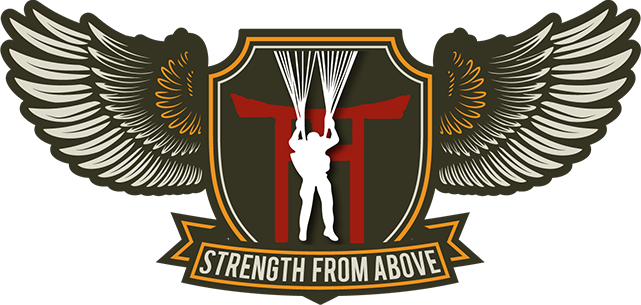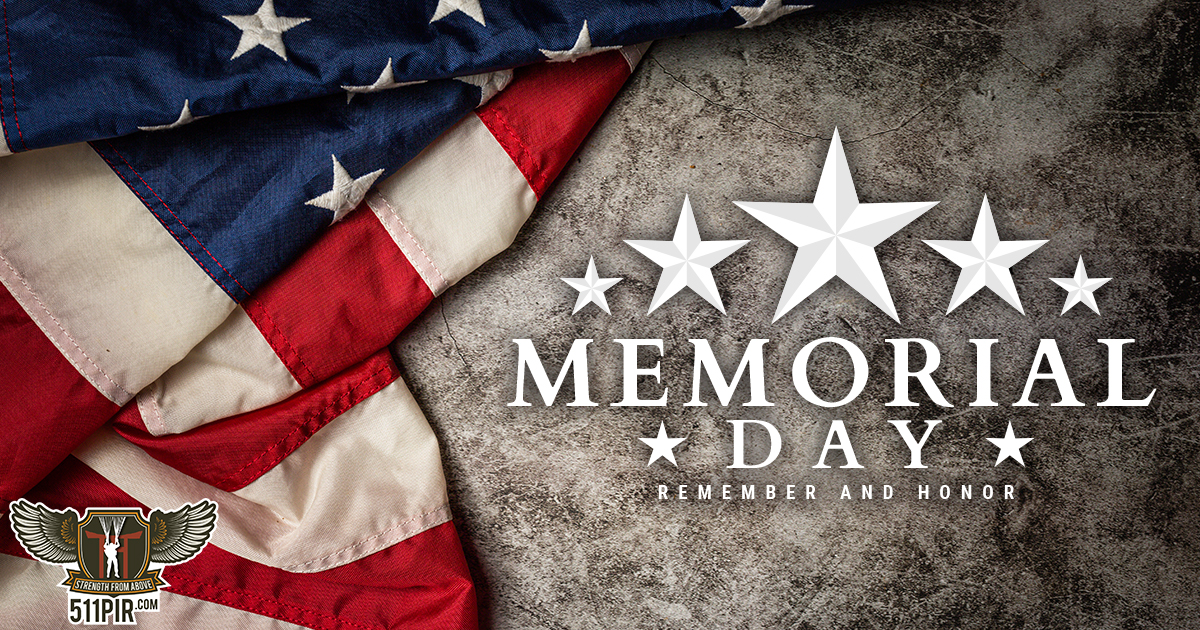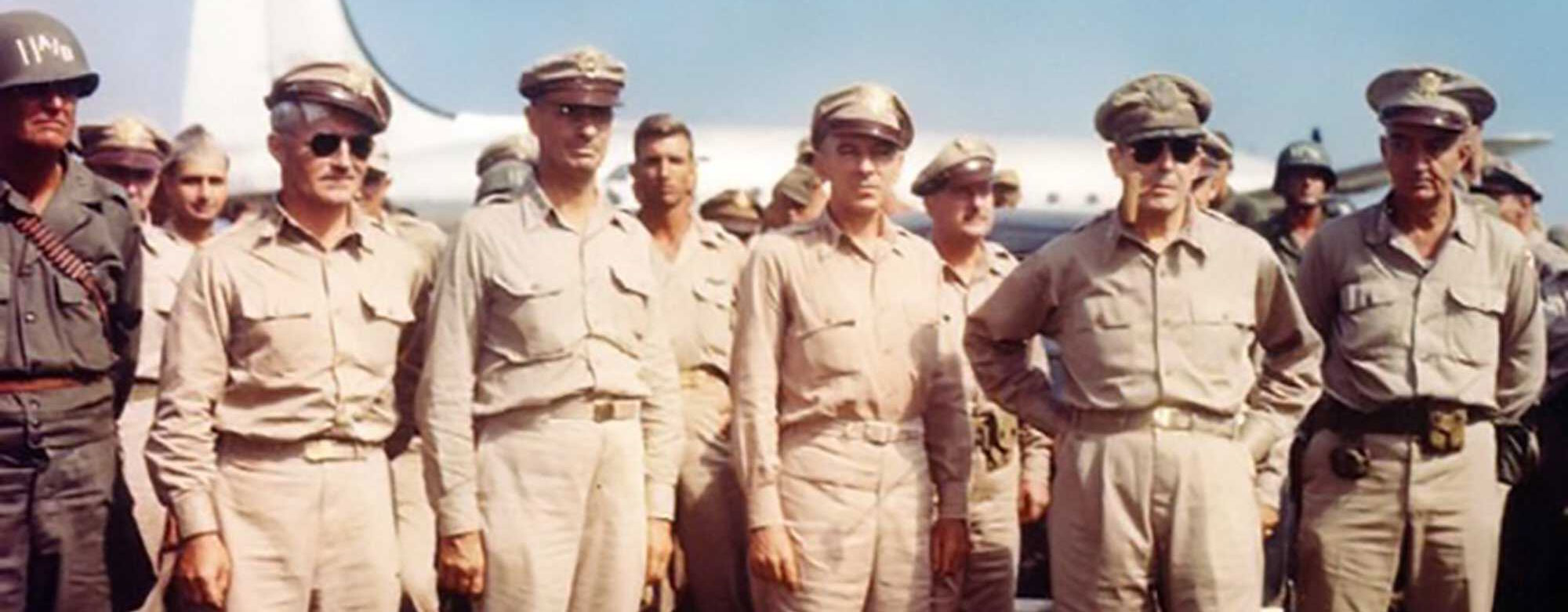Japan
"Victory for the U.S.A." - Poem by World War II veteran of the 457th Parachute Field Artillery Battalion
This poem was written during the war
by Private Bronnell York
Battery D, 457th Parachute Field Artillery Battalion
APO #468, %Postmaster
San Francisco, Calif
We're the boys of the 457,
Earning our major pay,
Fighting Japs and jungle life,
For three sixty cents a day.
Back we're soon forgotten,
By girls and friends we knew,
Here in the South Sea Islands,
Ten thousand miles from home.
All night the rains keep falling,
It's more than we can stand,
"No", folks, we're not convicts,
We're defenders of our land.
We're the boys of many,
Holding the upper hand,
Hitting the silk and hoping,
We're living when we land
We're having it pretty tough now,
You can believe what I say,
Some day we hope to live again,
Back home in the U.S.A.
The Landings at Atsugi, Japan on August 30, 1945
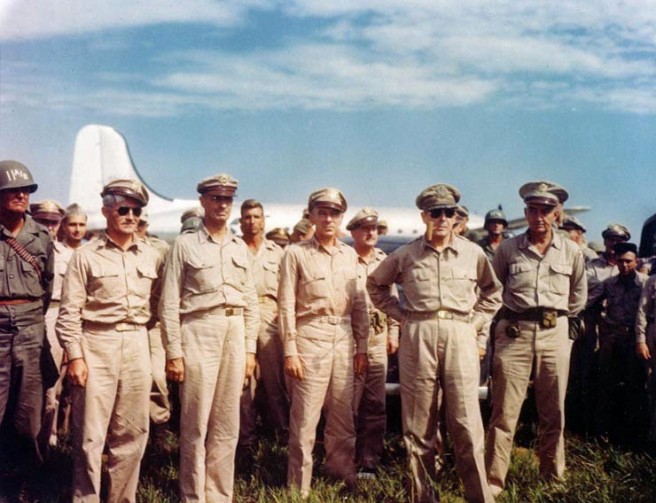 After my grandfather, 1LT Andrew Carrico of Company D, passed away in October of 2016, my beloved grandmother Jane gave me some of his books on military history and leadership. They are a special part of my collection, but the funny thing is....Grandpa really disliked some of them. He was painfully aware of just how few of the tens of thousands of books published on World War II even mention the 11th Airborne Division, let alone his proud 511th Parachute Infantry Regiment (you can likely count them on two hands)
After my grandfather, 1LT Andrew Carrico of Company D, passed away in October of 2016, my beloved grandmother Jane gave me some of his books on military history and leadership. They are a special part of my collection, but the funny thing is....Grandpa really disliked some of them. He was painfully aware of just how few of the tens of thousands of books published on World War II even mention the 11th Airborne Division, let alone his proud 511th Parachute Infantry Regiment (you can likely count them on two hands)
When Grandma shared Grandpa's books with me, she pointed to one with a smile and said, "Andy hated that one. It doesn't even mention the 11th." And as a historian for the 511th PIR, and the 11th Airborne as a whole, I have to agree with Andy. While researching, writing and publishing WHEN ANGELS FALL: FROM TOCCOA TO TOKYO, THE 511TH PARACHUTE INFANTRY IN WORLD WAR II, I found myself disappointed by the lack of media coverage regarding the Angels' history (I admit to some bias there).
One of the most important aspects of the Angels' history that is hardly mentioned anywhere is their incredible landings at Atsugi, Japan between August 28-30, 1945. Apart from further cementing the reality of the war's end, this made the 511th Parachute Infantry Regiment the first fully-formed foreign regiment to land on Japan in the country's long history, not to mention the first Allied unit into Japan at the war's end.
"We're Going to Japan"
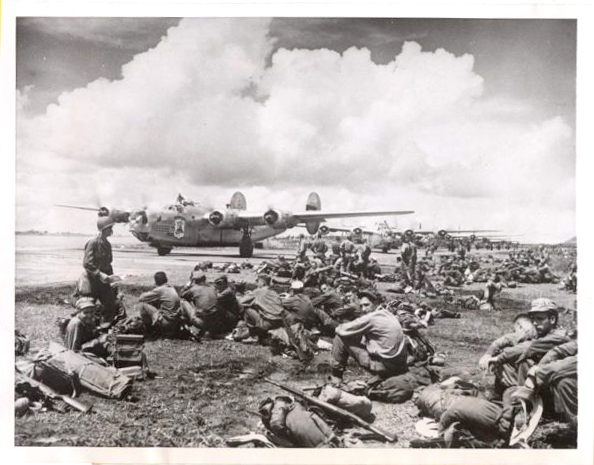 When Japan announced their intention to surrender on August 14, 1945, Major General Joseph May Swing's 11th Airborne Division sat, bored, on Okinawa near the National Cemetery, asking themselves if the surrender was all just a ruse to lure them onto the mainland only to destroy the first Americans to land. And since they were an airborne division, the Angels felt that they would indeed be some of those first "sacrificial lambs" sent in to secure some crucial target(s) or another.
When Japan announced their intention to surrender on August 14, 1945, Major General Joseph May Swing's 11th Airborne Division sat, bored, on Okinawa near the National Cemetery, asking themselves if the surrender was all just a ruse to lure them onto the mainland only to destroy the first Americans to land. And since they were an airborne division, the Angels felt that they would indeed be some of those first "sacrificial lambs" sent in to secure some crucial target(s) or another.
Before the surrender was announced, however, the waiting Angels were somewhat “hellbent for election” according to one trooper. Even so, General Swing's men questioned if they would make it through the potential invasion on Japan, should the operation be called for. Leyte and Luzon had both bled the 511th PIR sorely and the paratroopers who had managed to survive both campaigns quietly wondered if the "third time was the unlucky charm."
But that didn't stop General "Jumpin' Joe" Swing from walking into the hospital treating many of his Luzon wounded and booming, “I want every man that can walk…out of here today. We’re leaving the island; we’re going to Japan.”
General Swing's battle-worn Angels were ready for the war's end and while all were ready to do their duty if called upon to jump on mainland Japan, no one shed any tears when news of the atomic bombs' destruction at Hiroshima and Nagasaki spread through the Division's Okinawa camps. But there wasn't any wild celebrating either; the Angels had fought Imperial Japan too long to believe that the enemy was ready to throw in the towel just yet.
In truth, many were and another firebombing raid on Tokyo on August 14 sealed the decision. Before the last aircraft returned, Japan surrendered and President Harry S. Truman declared to reporters at the White House, “This is the day we have been waiting for since Pearl Harbor. This is the day when Fascism finally dies, as we always knew it would.”
“Victory in Japan Day”, or “VJ-Day”, celebrations erupted around the world from London to Luzon, Pearl Harbor to Paris, and New York to New Guinea. But on Okinawa, the Angels took several test jumps from modified B-24 bombers since a C-46’s fuel tanks could not make it to Tokyo and back with an acceptable margin of safety. The B-24s were quickly rejected as they lacked sizeable jump doors and could not slow down enough for safe jumping. In the end, Douglas C-54 Skymasters were selected as the Angels’ main source of conveyance and since most of the C-54s were commercial, the 511th’s paratroopers were beyond pleased to see ten rows of comfortable seats.
